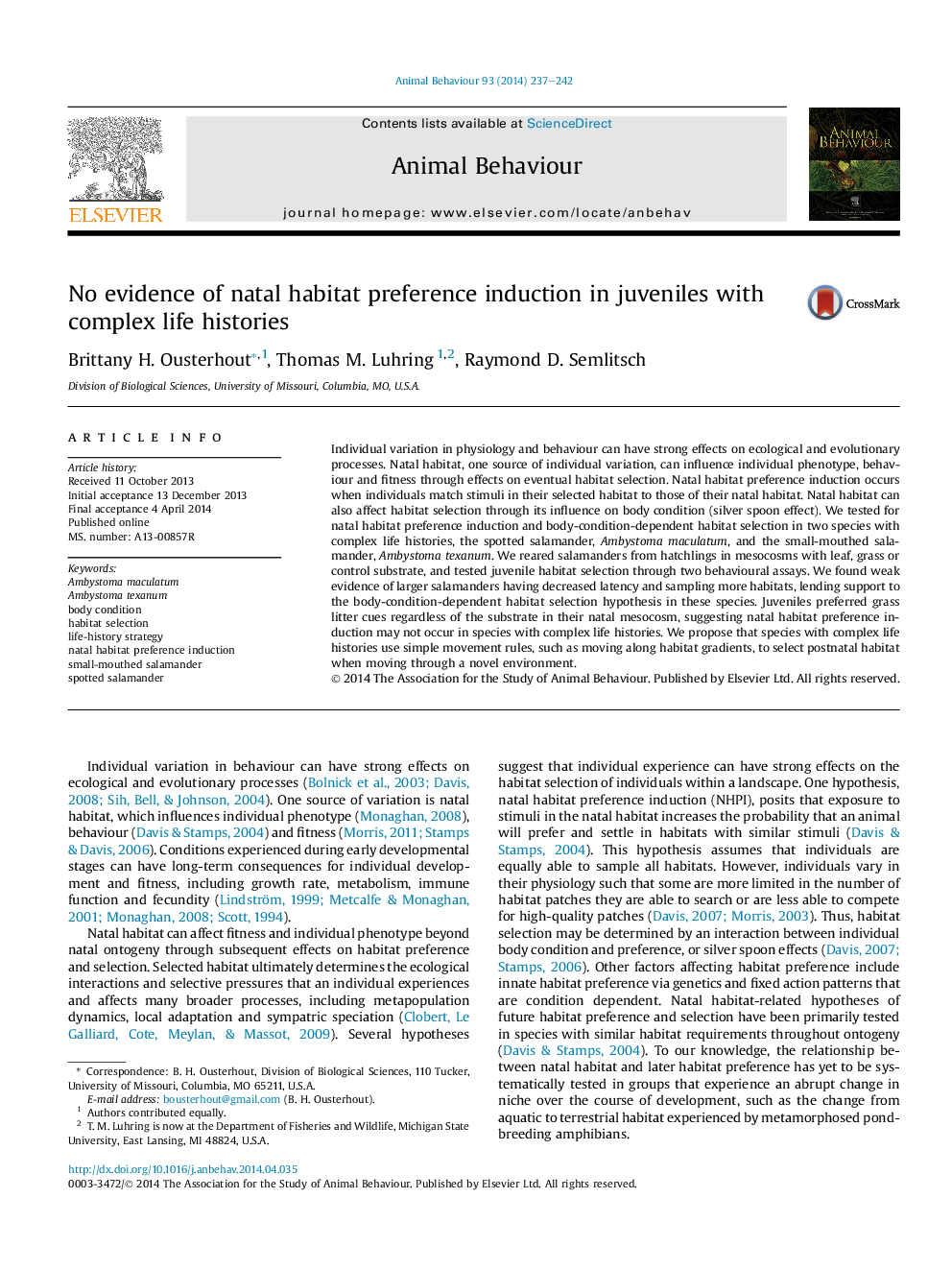| Article ID | Journal | Published Year | Pages | File Type |
|---|---|---|---|---|
| 8490477 | Animal Behaviour | 2014 | 6 Pages |
Abstract
Individual variation in physiology and behaviour can have strong effects on ecological and evolutionary processes. Natal habitat, one source of individual variation, can influence individual phenotype, behaviour and fitness through effects on eventual habitat selection. Natal habitat preference induction occurs when individuals match stimuli in their selected habitat to those of their natal habitat. Natal habitat can also affect habitat selection through its influence on body condition (silver spoon effect). We tested for natal habitat preference induction and body-condition-dependent habitat selection in two species with complex life histories, the spotted salamander, Ambystoma maculatum, and the small-mouthed salamander, Ambystoma texanum. We reared salamanders from hatchlings in mesocosms with leaf, grass or control substrate, and tested juvenile habitat selection through two behavioural assays. We found weak evidence of larger salamanders having decreased latency and sampling more habitats, lending support to the body-condition-dependent habitat selection hypothesis in these species. Juveniles preferred grass litter cues regardless of the substrate in their natal mesocosm, suggesting natal habitat preference induction may not occur in species with complex life histories. We propose that species with complex life histories use simple movement rules, such as moving along habitat gradients, to select postnatal habitat when moving through a novel environment.
Related Topics
Life Sciences
Agricultural and Biological Sciences
Animal Science and Zoology
Authors
Brittany H. Ousterhout, Thomas M. Luhring, Raymond D. Semlitsch,
